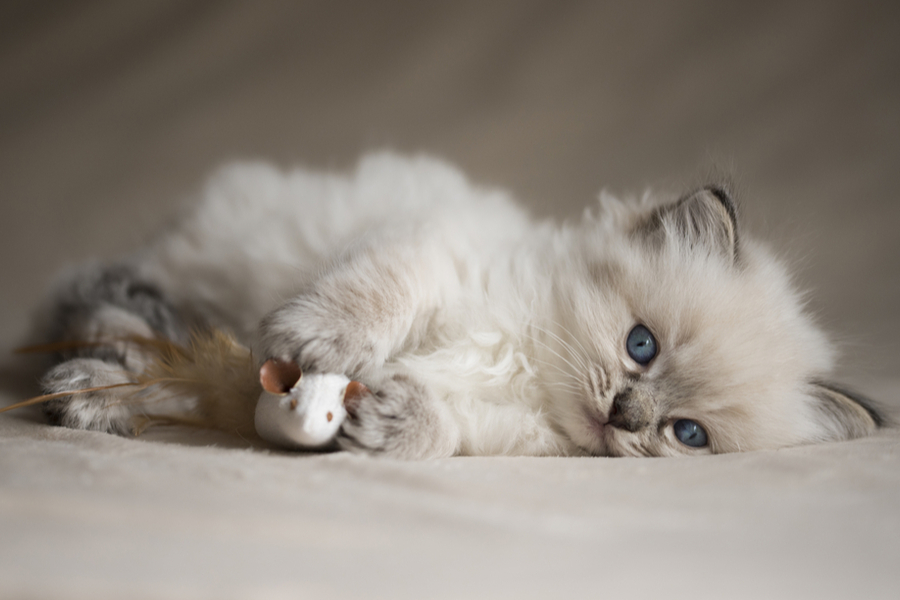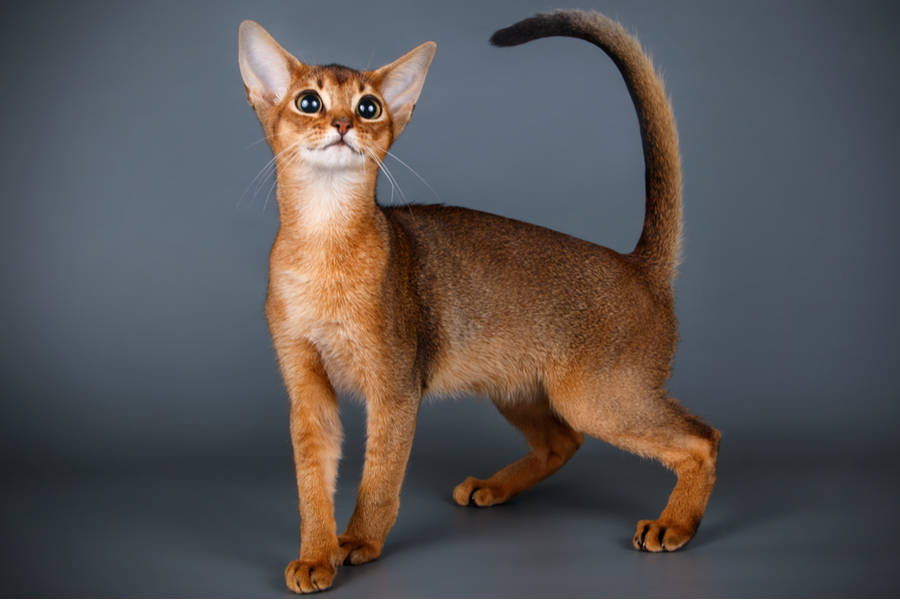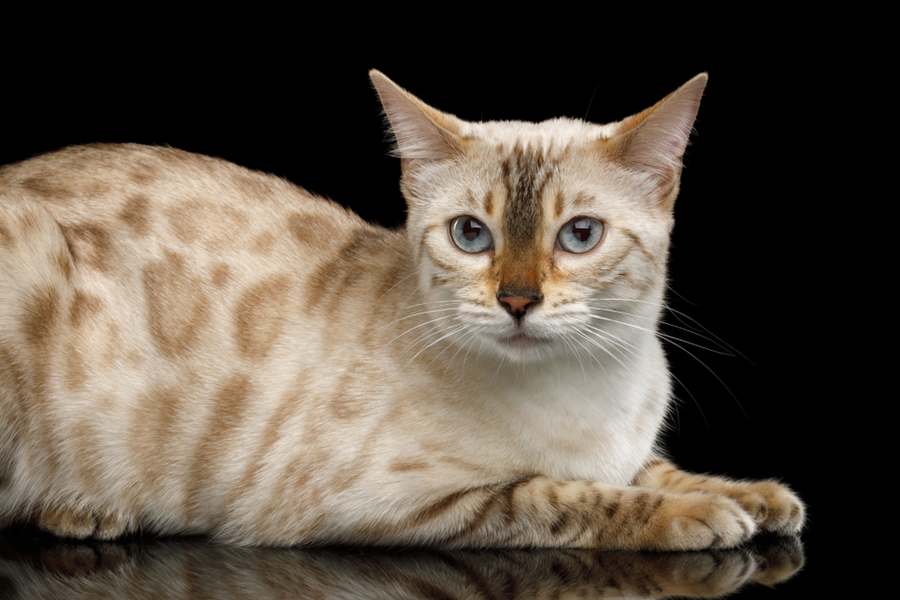Cats can make the most fantastic animal companions; they are adorable, friendly, and loving. However, not all felines are created equal. There are many different breeds, of which each has its unique personality traits. Because of this, it can be confusing and overwhelming to know which is the right cat breed for you.
So, if you’re new to the world of felines, we’re here to help. Here are the most important things you should consider before getting a cat to determine which one is best for you.
Factors to consider when choosing a cat breed
Your availability
While cats, in general, are lower maintenance than dogs, some kitties can be pretty needy. All domestic cat breeds enjoy human interaction, but some have much higher social needs than others.
Sphynx, Oriental Shorthair and Ragdolls require lots of human interaction and develop strong attachments to their owners. As a result, they can exhibit signs of stress when left alone for periods longer than a few hours. Therefore, if you work full time, you should choose a more independent cat breed that does not mind staying home alone during the day, such as a Russian Blue and Maine Coon.
Moreover, the brighter the cat, the more interactive play they will require. Highly intelligent cats can get bored quickly and need regular physical and mental stimulation for their wellbeing. Considering this, if you do not have much time to dedicate to a furry companion, you should choose one of the most easy-going and independent breeds, such as a Birman.
Other household members
Certain breeds do best with other animals, whereas others prefer to be alone. For example, Siamese and Somali cats often do better as solo pets. Birmans and Oriental Shorthairs, on the other hand, do not like being the only pet and thrive with other felines or even canines around.
If you’re choosing a docile breed like a Ragdoll, consider that these cats do not like conflict and will not fight back. Therefore, if you already have cats that have a tendency to be territorial or aggressive to other animals, a feline as gentle as a Ragdoll will not be a good fit. In a case like this, the other cats will likely dominate the Ragdoll, which may damage their well-being.
On the other hand, if you have very timid cats, a Ragdoll would be a great choice. If this is the case, you should avoid breeds that have a dominating nature, like Turkish Angoras. Otherwise, they will quickly become the alpha, which may lead to your other pets getting anxious.
Furthermore, if you have young children, you should choose a cat breed with a very easy-going temperament, like a Norwegian Forest or Maine Coon. Some cats, like Turkish Vans, do not like to be picked up and held and may get angry if this wish is not respected. Therefore, they may not be the best fit for families with young children who want a docile cat to cuddle and carry around.
Personality preference
Some breeds have a very calm temperament, whereas others are incredibly energetic. Every cat owner has their preference as some people want a lap cat and others prefer a feline that will run around and entertain them.
Alternatively, you may want a balance between these yin and yang energy. The Oriental Shorthair has moderate energy levels, so they love to play and climb but enjoy relaxing and being petted, too.
Relaxed cat breeds
Birmans and Russian Blues are two of the most easy-going cat breeds. They have a lovely, calm temperament and lower energy levels, meaning they love to cuddle with their owners.
Playful cat breeds
Bengal, Siamese, Somali, Abyssinian and Norwegian Forest cats are some of the most playful breeds that are highly intelligent and full of energy.
Affectionate cat breeds
Russian Blues and Scottish Folds are calm, affectionate breeds that make ideal lapcats as they love to curl up with their owners and spend the day lazing around.
Your living environment
You should also consider your living space and the environment. For example, if you live in a small apartment, a quiet, relaxed breed like a Russian Blue will make an ideal choice. On the other hand, highly playful breeds need space to run around and climb and thus; are better suited in a house.
Aside from the living space, think about if your home is busy and loud or quiet and calm. Vocal and active cats like the Siamese and confident, people-oriented breeds, like American Bobtails, do well in dynamic environments. On the other hand, calmer and more timid felines like Birman and Russian Blues desire a peaceful environment where people are not coming and going all day.
Grooming needs
You should also consider how high or low maintenance a specific breed is in the grooming department. Luckily, many felines only need to be brushed once or twice a week, such as American Bobtails, Russian Blues, and Siamese.
However, some cats have higher grooming needs. Let’s take the Sphynx, for example, which has one of the most extensive grooming schedules. As hairless felines, Sphynx cats require bathing once or twice a week as their skin can quickly become oily. They also need their ears cleaned regularly, as this body part can produce significant amounts of oil, too.
Your budget
Lastly, think about how much you are prepared to spend on your new furry friend. Kitten prices vary depending on the breed and its availability. The rarer the cat, the more expensive it will be.
Moreover, where you buy your kitten will determine the price, too. When it comes to animals, choosing the cheapest ones is never a good idea. If you pay just a few hundred pounds for a pedigree kitten, they are likely coming from an unlicensed breeder or illegal pet farm.
However, when you buy a kitten from a reputable breeder or trusted agency, like The Pedigree Paws, the typical price range is between £1,500 and £3,000. Although the price may be a little higher, these kittens come with official breed documentation and have a thorough health check to prove they are 100% healthy.
Final Thoughts
As you can see, the personality and temperament of cats can vary greatly. Therefore, don’t rush the decision. Get clear on what you are looking for and how much time and energy you have to give, then do your research to ensure you choose the right kitty for you.







